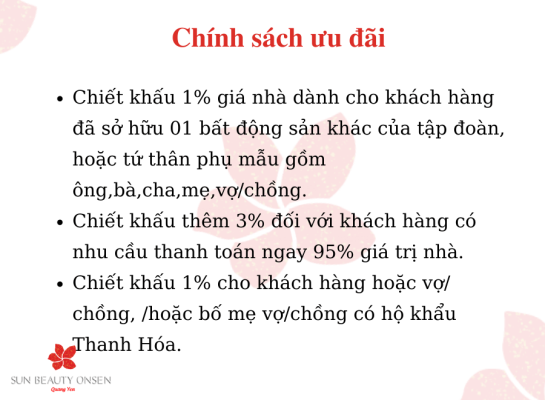- Dare to Predict the Next Step & Win Up to $20,000 on Chicken Road with a 98% RTP
- Understanding the Core Gameplay of Chicken Road
- The Role of the Multiplier
- Difficulty Levels and Their Impact on Gameplay
- Understanding the RTP and House Edge
- Strategies for Success in Chicken Road
- The Martingale Strategy and Its Limitations
- Bankroll Management and Responsible Gambling
Dare to Predict the Next Step & Win Up to $20,000 on Chicken Road with a 98% RTP
The world of online casino gaming is constantly evolving, offering players new and exciting ways to test their luck and skill. Among the many innovative game formats, crash games have gained significant popularity, captivating audiences with their simple yet thrilling gameplay. One such standout title is chicken road, a visually engaging and fast-paced experience where players aim to cash out before a determined chicken inevitably…well, meets its fate. This game blends elements of risk, reward, and quick decision-making, making it a favorite among both novice and seasoned casino enthusiasts.
This in-depth exploration will dive into the mechanics of chicken road, outlining gameplay, difficulty levels, potential payouts, and the underlying principles that make it so appealing. We’ll cover everything from the basic rules to advanced strategies, helping you understand how to maximize your chances of success in this unique and exhilarating casino game.
Understanding the Core Gameplay of Chicken Road
At its heart, chicken road is incredibly simple to understand. A chicken begins its journey across a series of lines or ‘roads’, represented visually on the screen. With each step the chicken takes, a multiplier increases, elevating the potential payout for players. The core strategy revolves around timing – when to cash out and secure your winnings, or when to risk it for an even larger multiplier. The game ends abruptly when the chicken crashes, meaning players who haven’t cashed out lose their entire stake. This creates a palpable sense of tension and excitement with every round.
| Easy | 25 | 1/25 |
| Medium | 22 | 3/25 |
| Hard | 20 | 5/25 |
| Hardcore | 15 | 10/25 |
The Role of the Multiplier
The multiplier is the key element driving the excitement in chicken road. It starts at 1x and increases incrementally with each step the chicken takes. A higher multiplier translates directly into a greater potential profit. However, the higher the multiplier, the greater the risk. A small increase in the multiplier can significantly amplify your winnings, but it also brings you closer to the inevitable crash. Therefore, skilled players must carefully balance their desire for large payouts with a realistic assessment of the risk involved. Many players employ strategies such as setting target multipliers, or automatically cashing out when the multiplier reaches a predetermined level.
The multiplier doesn’t increase linearly. It’s designed to create periods of slow growth followed by rapid acceleration, adding an extra layer of unpredictability. This is a deliberate design choice that heightens the tension and keeps players engaged. Understanding these patterns, even on a subtle level, can grant players a slight edge.
The multiplier’s fluctuation adds a psychological component to the game. The anticipation of a large multiplier can lead players to become fixated on the screen, increasing the emotional investment in each round. This emotional involvement is part of the appeal of chicken road, alongside its fast-paced nature and inherent risk.
Difficulty Levels and Their Impact on Gameplay
Chicken road offers a tiered system of difficulty levels, catering to players of all risk tolerances. Each level adjusts the number of lines the chicken traverses, and crucially, the probability of a crash. The ‘Easy’ mode provides the most forgiving experience with 25 lines, giving players more opportunities to cash out. Meanwhile, ‘Hardcore’ mode, with only 15 lines, significantly increases the risk, demanding precise timing and nerve of steel. The risk factor indicates how frequently the chicken is likely to crash; a higher risk factor means a quicker game, but with the potential for larger multipliers. Choosing the correct difficulty levels depends mainly on a player’s experience, risk tolerance, and desired payout range.
- Easy: Ideal for beginners and players who prefer lower risk.
- Medium: A balanced option, offering a good compromise between risk and reward.
- Hard: Designed for experienced players seeking higher payouts and challenges.
- Hardcore: Reserved for seasoned veterans who enjoy high-stakes gameplay.
Understanding the RTP and House Edge
The Return to Player (RTP) is a critical metric indicating the percentage of wagered money that a game returns to players over an extended period. Chicken road boasts a respectable RTP of 98%, meaning that, on average, players can expect to recoup 98% of their wagers over time. While RTP doesn’t guarantee individual wins, it serves as a good indicator of the game’s fairness. This RTP is higher than many traditional casino games, making chicken road an attractive option for players seeking favorable odds. The house edge, conversely, represents the casino’s advantage. In this case, the house edge is 2% (100% – 98% RTP).
It’s important to note that RTP is calculated over millions of rounds. Short-term results can vary significantly, and players should always gamble responsibly. While a high RTP like 98% is a positive sign, it doesn’t eliminate the inherent risk associated with casino games.
The perceived fairness of a game is crucial for building player trust. A transparent RTP and a perceived lack of manipulation helps create a positive gaming experience and foster long-term engagement.
Strategies for Success in Chicken Road
While chicken road is undeniably a game of chance, players can employ several strategies to improve their odds and potentially increase their winnings. One common approach is to set a target multiplier. Rather than chasing ever-increasing payouts, players decide on a specific multiplier where they will automatically cash out. This minimizes the risk of losing everything by ensuring they secure a profit before the chicken crashes. Another tactic involves analyzing previous game history to identify patterns, though it is important to remember that each round is independent, and past results don’t necessarily predict future outcomes.
- Set a Target Multiplier: Decide in advance when you’ll cash out.
- Manage Your Bankroll: Don’t bet more than you can afford to lose.
- Understand the Risk Levels: Choose the difficulty that matches your risk tolerance.
- Practice Responsible Gambling: Take breaks and avoid chasing losses.
The Martingale Strategy and Its Limitations
The Martingale strategy, a popular betting system, involves doubling your bet after each loss in the hopes of recovering previous losses with a single win. While seemingly effective in theory, this strategy is risky and can quickly deplete your bankroll. In chicken road, the all-or-nothing nature of the game magnifies the dangers of the Martingale strategy. A long series of crashes can quickly lead to exponentially increasing bets that exceed your available funds. Furthermore, casinos often impose maximum bet limits, which can prevent you from continuing the doubling sequence. While the Martingale strategy can occasionally yield short-term gains, it’s not a reliable long-term approach to chicken road, and is generally discouraged for responsible players.
A slight modification of the Martingale strategy—selective Martingale—might be preferable. This involves only doubling your bet after a *small* loss, and resetting the strategy after reaching a certain loss threshold. It’s still risky, but less so than blindly doubling after every crash.
It’s crucial to acknowledge that no strategy can guarantee consistent wins in a game fundamentally driven by chance. The best approach is a demonstrable practice of responsible gaming and setting realistic expectations.
Bankroll Management and Responsible Gambling
Effective bankroll management is paramount when playing chicken road. Before you begin, determine a specific amount of money you’re willing to lose. Stick to this budget and avoid chasing losses. A good rule of thumb is to wager only a small percentage of your bankroll on each round, spreading your risk and extending your playtime. It’s vital to view chicken road as a form of entertainment and not as a guaranteed source of income. Responsible gambling practices include setting time limits, taking frequent breaks, and avoiding playing under the influence. If you find yourself struggling with gambling, resources are available to help, and it’s important to seek support.
The allure of fast-paced casino games like chicken road stems from the excitement and potential for instant rewards. However, maintaining a disciplined approach and upholding principles of responsible gaming ensures a more enjoyable and sustainable experience.



























